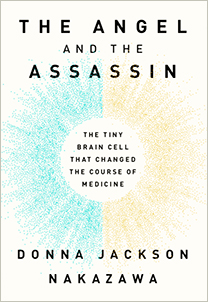Breaking Generational Trauma to Raise Whole Kids

Studies show that adults who’ve recognized the effect of trauma in their own lives are calmer and more mindful in the face of children’s challenging behaviors…
Stop People Pleasing and Start Healing Now

It can be so challenging as a wife and mother (and as a caregiver of an aging parent) to shift gears from taking care of others to taking care of ourselves. And if you experienced any childhood adversity, it makes it that much harder. Like me, you …
New Year, More Me!

While I feel deeply called to extend love and compassion to others, I’ve come to an important realization: I deserve that same love too. Part of honoring that truth means learning to protect my space and energy with greater care…
Holiday Stress and the Myth of the Perfect Family Gathering

Are you feeling the pressure of the holiday season? You’re not alone. The holidays aren’t always as happy and perfect as movies and commercials make them seem. In my workshops across the country…
When Parents Are Overwhelmed, Teenagers Suffer

Our Unhealed Trauma and Anxiety Are Creating a Crisis for Our Teens. A groundbreaking CDC study recently asked teens to self-report the adversities they face and how those experiences affect them. The findings are sobering…
Diving Gently into Your Own Story

Begin to Uncover the Impact of Childhood Trauma with Writing-to-Heal Strategies. Have you ever wondered if experiences from your past might still be shaping how you feel and respond to life today? Unresolved childhood trauma can quietly linger, impacting both your…
Your Story Matters – To You, and to Your Children

How healing your own wounds can transform your children’s lives What if the one thing your kids are hoping and waiting for is for you to do the work to grow with them instead of staying stuck in old behaviors and reactions that never served you, and certainly don’t serve them? If this resonates…
Healing from Childhood Trauma + Building a New Community

Do you feel you have enough connection and community in your life? I’ve been missing it. My family and lifelong friends fulfill my longing for deep personal connection but sometimes – especially in an era of digital overwhelm, fraught interactions on social media, and…
How adverse childhood experiences or ACEs impact your current wellbeing

Often, people who have a history of trauma in childhood find themselves struggling to flourish in adulthood. Trauma affects the brain in ways that can make you more likely to experience difficulty when faced with emotionally stressful and demanding situations in your relationships, at work, and as a parent. Throughout my life, both growing up and as an adult, I’ve faced a number of challenging life experiences, stressors, and traumas, and I understand this struggle on a deep, intrinsic level. I’ve learned, not only for myself, but through my many years reporting as a science journalist, that chronic unpredictable stress in childhood affects the architecture of the brain in ways that can impact negatively our everyday life. And yet it is possible though to create new, more powerful healing possibilities for inner peace and flourishing. The brain is wonderfully neuroplastic. And it’s never too late to begin the healing process. What are adverse childhood experiences (ACEs)? The term adverse childhood experiences refers to chronic, unpredictable stressors that children and teenagers encounter while growing up. The original ACEs questionnaire was first created in 1995 by a team of physicians who asked thousands of patients about their experiences in childhood, and then compared those childhood experiences to patients’ adult health records. This original ACEs survey asks about 10 categories of adversity in childhood.These include facing physical, emotional, or sexual abuse; physical or emotional neglect; and experiencing different types of familial dysfunction, including growing up with a parent who suffered from a mental illness; or who had an addiction; or having parents who separated or divorced; or losing a parent. Our understanding of ACEs has since expanded to include growing up facing poverty, racism, community violence, and other environmental stressors such as the pandemic and climate change. Adverse childhood experiences turn out to have a profound effect on adult health. Over 2,000 studies have shown that individuals with ACEs scores of 2 or more are more likely to develop physical and mental health concerns in adulthood. This relationship between adversity in childhood and health issues in adulthood is dose-dependent. In other words, the more categories of ACEs you experienced as a child, the greater the likelihood of later experiencing physical and mental health disorders in adulthood. For instance, those with an ACE score of 3 have a 60 percent increased risk of later developing an autoimmune disease, such as lupus, multiple sclerosis, or Type 1 diabetes. And those with an ACE score of 4 or more are four times more likely to experience depression in adulthood. Trauma and the brain Adversity in childhood can change the brain in myriad ways, altering neural connectivity in the amygdala, the alarm center of the brain; the hippocampus, where you process memories and emotions; and the pre-frontal cortex, the decision-making center of your brain. Changes also occur in how well these areas communicate and network with each other in what’s known as the connectome of the brain. How brain changes affect you These changes can profoundly affect how you feel on a day-to-day basis, including how well you’re able to: You may find yourself either overreacting or underreacting to the world around you more than you’d like, or feel powerless about how you can exert influence over your history of trauma and adversity, or experience a sense of inertia or hopelessness about how you can manage chronic stressors now. What can you do? You can begin to change the legacy of the past by learning and applying neuroscience-based techniques that have a self-calming and self-regulating effect on you, and doing so in a way that is compassionate, patient, kind, and accepting of yourself. Often, those with a history of trauma have more difficulty showing loyalty to themselves, engaging in self-care, and waking up on their own side. The invitation is to become the “general contractor” of your own well-being and utilize simple, neuroscience-based tools to help replace old neural pathways that no longer serve you with neural pathways that promote your healing and flourishing. This is a process that I call Neural Re-Narrating™. I know how difficult this past year has been for all of us. Many people with ACE’s are finding that the early #trauma and sense of unsafety they endured growing up are being re-triggered during these fear-laden times, amidst the Covid-19 pandemic, political upheaval, and feeling isolated. To help address the stress and uncertainty we are all facing, I’ve created a new course, Your Healing Narrative: Write-to-Heal with Neural-Re-Narrating™️, to help you work through your ACE’s and become resilient in the face of current stressors. In this course, I teach you a new way to talk to yourself by intertwining writing prompts with mind-body exercises to signal your nervous system to calm down, reverse negative self-talk, and begin to recover from ACEs. This program combines a series of writing prompts with mindfulness techniques and the latest neuroscience to help you engage in Neural Re-Narrating™—creating a new, more powerful and resonant healing narrative that will help you change neural pathways in ways that will help you to flourish in your current life, even in these unprecedented times of adversity. Learn more here.
How to care for yourself during difficult times

Many people with #ACE’s (Adverse Childhood Experiences) are finding that the early #trauma and sense of unsafety they endured growing up are being re-triggered during these fear-laden times, amidst the #Covid #pandemic, political upheaval, and feeling isolated. Stress and uncertainty can trigger old, sticky feelings of fear, anxiety, or loss from long ago and bring up new, painful negative thoughts and physical symptoms. This can be true even when we’ve worked really hard to resolve our trauma. It can feel like we’re backsliding. I know that this is certainly the case for me, and I know, from so many of you who’ve reached out to me, that this is also the case for many of you. So here’s a gentle reminder. It’s so important to stop, pause, and take care of yourself during these difficult times, as often as you need to. It is OKAY to take a break whenever you need to, even if it’s every twenty minutes. Go for a walk. Order yourself some flowers and put them in a favorite vase. Do five minutes of deep breathing. Call a friend. Reach out to a trusted mental health care practitioner. Do all of the above. Whenever I am triggered in my personal life and old fears emerge (which is often these days), I return to the many different tools in my toolbox. One is a series of basic breath techniques that help me move through old sticky feelings and dissipate the fear, tension, and uncertainty I feel. To inspire you, here’s a quick review of the science on how breathing techniques can help you to calm your nervous system by activating the parasympathetic nervous system (what I like to call the Purr Now System), or PNS, which helps to boost the relaxation response. Oxygenating the Brain Your nervous system is comprised of an intricate network that carries messages from the brain to the body—telling you whether you are safe or not safe—in order to help you regulate your bodily functions and prepare for any possible situations, interactions, or challenges in your environment for which you may need to prepare. This network is a two-way superhighway of messaging. Messages rise from the body to tell the brain whether you’re safe, and the brain sends messages to the body about whether you need to prepare for any potential threat. This communication is constant, and one of the ways in which the body and brain communicate is through the breath: You take in 25,000 breaths a day. Breathing Too Fast If your breath is shallow, or coming quickly, as it is when you are stressed, the brain gets the message to act and respond as if you’re in physical danger. Respiratory messages take top priority when it comes to getting the brain’s attention. Breathing and Emotions Your emotional state of mind affects the rate, depth, and pattern of your breath and vice versa. Manipulating the breath in ways that match up with a particular emotion—such as fear, rage, joy, or contentment—can account for as much as 40 percent of how you feel emotionally. Think of screaming out loud in pain, holding your breath in fear, laughing with gladness, sighing with relief, or breathing in deeply as you drink in a beautiful scene in nature. Breathing Technique According to decades of research, the most beneficial breath sequence for stimulating the positive healing power of the parasympathetic nervous system (PNS), calming your brain and body, and managing anxiety is breathing in for 5½ seconds and breathing out for 5½ seconds. It can also help to make your exhale last longer than your inhale. Filling your diaphragm—by pushing your belly out like a Buddha’s belly—also helps push blood into the heart and slow your heart rate. Slowing your heart rate helps to pump blood throughout the body, thus oxygenating the body and brain. This helps stimulate the PNS and the relaxation response. Breathing vs. Medication Although many medicines can temporarily dampen the stress response and the sympathetic nervous system (or what I call the Stress Now System), there are no medications you can take to boost the rest and relaxation response, or the parasympathetic nervous system. Slow, gentle breathing can stimulate the relaxation response rapidly and effectively—in as little as five minutes. The oldest tool we have is the most powerful—the breath—and it has zero side effects. Stop the negative self-talk and soothe your nervous system The events and stressors of this past year have prompted me to create a new course, Your Healing Narrative: Write-to-Heal with Neural-Re-Narrating™️, to help you work through your #ACE’s and become resilient in the face of current stressors. In this course, I teach you a new way to talk to yourself by intertwining writing prompts with mind-body exercises to signal your nervous system to calm down, reverse negative self-talk, and begin to recover from #ACEs. This program combines a series of writing prompts with mindfulness techniques and the latest neuroscience to help you engage in what I call Neural Re-Narrating™—creating a new, more powerful and resonant healing narrative that will help you change neural pathways in the brain in ways that will help you to flourish in your current life, even in these times of adversity. Learn more here.





